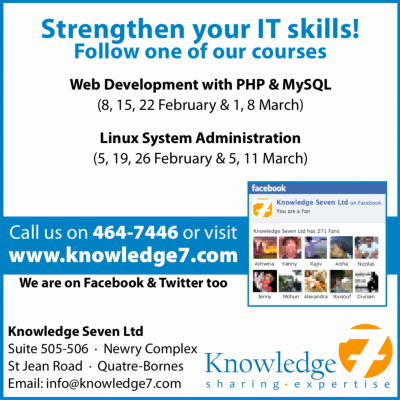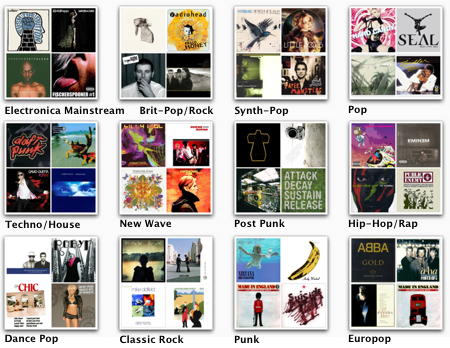My company, Knowledge Seven Ltd, will be running two courses in the following weeks:
- Web Development with PHP & MySQL will run on 8, 15, 22 February and 1, 8 March
- Linux System Administration will run on 5, 19, 26 February and 5, 11 March
Both courses are MQA-approved and places are still available. Call us on 464-7446 or visit http://www.knowledge7.com/ for more information.


